A Conversation With David Gordon Green (PRINCE AVALANCHE)
(Prince Avalanche is now available on DVD, Blu-ray, Amazon Instant, and iTunes through Magnolia Pictures.)
Not yet 40 years old, David Gordon Green has nonetheless already built up a feature film resume that displays the type of breadth and scope—in genre, in budget, in tone—that would suffice for a lifetime. Yet the workaholic Green appears to be just getting started. With the intimate production Prince Avalanche, Green found two actors (Paul Rudd and Emile Hirsch) who have enabled him to place his uniquely bizarre sense of humor front and center for the very first time (read Jesse Klein’s full HTN review here). The day after the film’s world premiere at the 2013 Sundance Film Festival, I sat down with Green to talk about Prince Avalanche, his (then just recently wrapped) follow-up Joe, as well as his definition of what makes a truly independent film. As for Prince Avalanche, it was picked up for distribution shortly after this very conversation by Magnolia Pictures, who are releasing it theatrically and through VOD on August 9, 2013 (go here to learn more). [NOTE: I have already documented my friendship with Green on this very site, and while I should further disclaim that while I received a (totally awesome!) crew credit on Prince Avalanche, that has nothing do with the conversation that takes place here.]
Hammer to Nail: Have you been doing press yet?
David Gordon Green: Yeah.
H2N: And is everyone taking the “return to roots” approach?
DGG: That’s kind of a theme, yeah.
H2N: And, has that forced you to evaluate yourself in that way?
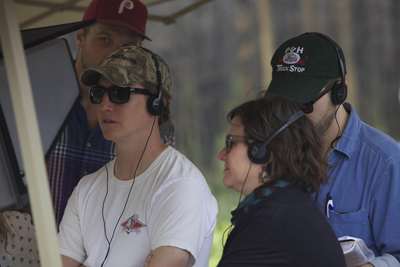 DGG: [long pause] First of all, people say “a return to independent,” and I find that frustrating because nobody’s ever made me cut anything. I’ve always had great independence in movies. In fact, a movie like Pineapple Express—or even a movie like Your Highness—I had more independence than you could ever have on any [project], you know, outside of the ‘system financed movie.’ I guess you can look at it as if independent means ‘not financed by a corporation,’ then I’ve done a few of those movies. So it’s a little frustrating to look at it in those terms.
DGG: [long pause] First of all, people say “a return to independent,” and I find that frustrating because nobody’s ever made me cut anything. I’ve always had great independence in movies. In fact, a movie like Pineapple Express—or even a movie like Your Highness—I had more independence than you could ever have on any [project], you know, outside of the ‘system financed movie.’ I guess you can look at it as if independent means ‘not financed by a corporation,’ then I’ve done a few of those movies. So it’s a little frustrating to look at it in those terms.
But in terms of getting back to my roots, I really think this project is a perfect example of taking the process of the earlier movies, but what I truly love about the performance of the later movies, and seeing if there’s a way to blend the two. In a Pineapple Express or Your Highness or The Sitter, these movies exist because they’re supposed to be funny and big comedic movies and you get to blow shit up and have car chases and things like that, but to make those responsible you have to make people laugh. So, there will be things in those movies that I don’t find funny. Such as in Pineapple Express, when Franco comes in and says, “Fuck the police,” you think that’s really funny. I saw you laugh at that and I put it in the movie. [H2N laughs] I don’t think that’s funny. That’s in the movie because of you. Because you clapped at Jesse Sweet’s house when we watched it.
H2N: Did you slip into an actual theater on opening weekend and watch it with a regular crowd?
DGG: Yeah. And that line is a perfect example. The audience goes apeshit. I think the funnier things are like the “you threw up on my printer” jokes, which aren’t jokes! [both laugh] So, Prince Avalanche is made up of nothing but “you threw up on my printer” jokes. There’s nothing other than my sense of humor in that movie. And it’s not really a comedy, because we’ve woven in such a dramatic layer to it—hopefully—that its success doesn’t rest on ‘jokes landing,’ ‘cause there are no jokes in the movie. There’s just a funny dynamic between characters and hopefully that works. So if we’re looking at the spectrum of my career, then [Prince Avalanche] has certainly the stripped down, low-budget process of George Washington and All the Real Girls and Undertow, but then with the comedic enthusiasm and star power of some of the later movies.
H2N: It’s funny you brought up the “throw up on the printer” line specifically, because it hit me watching the movie yesterday that this is the first time where that element, which you’ve usually made peace with relegating to the margins, is now front and center from beginning to end.
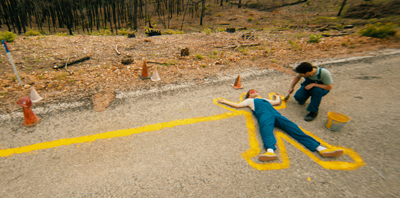 DGG: Like a guy who doesn’t know what a chiropractor is. That’s not a joke, it’s just funny!
DGG: Like a guy who doesn’t know what a chiropractor is. That’s not a joke, it’s just funny!
H2N: But then there are more primary moments like right after the jump/fall. They’ve just been fighting really intensely—to the extent where we might start wondering if this is going to go into Gerry territory—but then we’re wondering, “Is he really hurt? Is he going to turn into a vegetable?” And then Lance jumps down like a gymnast and Alvin’s like, “Oh, great jump!”
DGG: Exactly!
H2N: How does that extremely unique tone come about, specifically with regard to working with your actors? It seems like this type of thing in particular would be hard to “direct” in the more basic sense of the term.
DGG: It’s just having a common sense of humor with people
H2N: But not every actor would share that sense of humor.
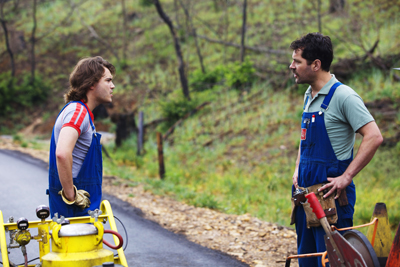 DGG: But those guys will play the game. You’ll say, “Hey do this one, land like a gymnast,” and then Paul will say, “Good job!” We all tag-team that stuff, but we all know what the funny is. I mean, there’s a good deal of improvisation, like when Paul’s talking about his hobbies and he says, “I read, I paint, I sew, I used to take care of my cat before it was killed!” [both laugh] Again, there’s nothing funny about this man’s cat having passed away other than him speaking confidently about what he does with his time!
DGG: But those guys will play the game. You’ll say, “Hey do this one, land like a gymnast,” and then Paul will say, “Good job!” We all tag-team that stuff, but we all know what the funny is. I mean, there’s a good deal of improvisation, like when Paul’s talking about his hobbies and he says, “I read, I paint, I sew, I used to take care of my cat before it was killed!” [both laugh] Again, there’s nothing funny about this man’s cat having passed away other than him speaking confidently about what he does with his time!
H2N: So how did it feel watching with a crowd, since it is actually such a personal expression—maybe one of your most personal when it comes to fully incorporating this totally unique brand of humor? Like, to call it ‘weird’ misrepresents it, but it is strange… or off…
DGG: Left of center! I don’t know. It is a weird movie because—outside of the fact that it’s a remake—there’s nothing structurally innovative about it. Two characters that contrast each other in a situation where they have to spend time together, frustrate each other, have a blowout, and then bond and get back together. I mean, that’s probably not as sophisticated as a Joseph Campbell Power of Myth storytelling, but it’s not too far off in terms of commonplace narrative.
H2N: Did that inspire things like the sequence I refer to as “the most tripped out lonely weekend in the history of cinema?” Like, even at the writing stage, where you maybe recognized the almost stage-like intimacy of two people going back-and-forth, so you wanted to open things up in some other way?
DGG: I wasn’t worried about that. The beauty and simplicity of the story, the beauty and simplicity of the stripped down production, is that then everybody’s got their stage, everybody’s got their rules, everybody’s got their financial boundaries, and then you can just mess around and try new things and get as weird as you want because you’ve always got the anchor of something stable in the familiarity of those things—or the simplicity of those things, I should say. Because I think it’s distractingly simple. The weekend [where Alvin spends time alone] is not in the original Icelandic film Either Way. It’s just a cut to the clouds and a passage of time and [Lance] shows back up. But when I’m watching that movie, I feel like that’s a great opportunity to see what this strange character Alvin does by himself to prove to the world, or prove to himself, that he’s a man—and how bizarre that might be by including prescription medication. [both laugh]
H2N: I haven’t seen Either Way. Is the fatherhood element there, or was that something new you injected into the story?
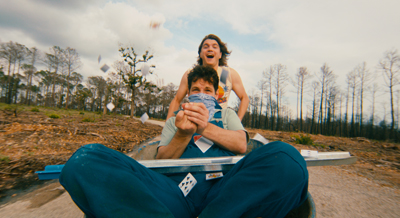 DGG: That was in there and I just personalized it a little bit. I adapted it really quickly, in like a week, for a 60-page script. I transcribed it and then translated it to me, and it did become a conversation between me and me. So there’s nothing that comes out of either of those dipshit heads that wouldn’t come out of my dipshit head. [H2N laughs]
DGG: That was in there and I just personalized it a little bit. I adapted it really quickly, in like a week, for a 60-page script. I transcribed it and then translated it to me, and it did become a conversation between me and me. So there’s nothing that comes out of either of those dipshit heads that wouldn’t come out of my dipshit head. [H2N laughs]
H2N: You adapted Snow Angels [from a novel] as well. When you do adaptations, how do you approach things with regard to the original authors?
DGG: I never talk to anybody. I never had any words with [the Either Way screenwriter] until after he saw the movie. So I met him yesterday, after he’d seen the movie, which is crazy.
H2N: But wait, didn’t some people from the movie visit you guys on set?
DGG: One of the producers came to the production for a couple days and then the wrap party. That was fun.
H2N: Everyone keeps talking about that wrap party, what in the hell went on at that thing?! [DGG laughs] When it comes to having contact with the original writer, it’s always a sensitive issue so I think you just have to make your decision right away and be comfortable with it.
DGG: I think it was done very respectfully to his movie and yet it felt very personal to us. In so much as, I don’t know if I’ve told you this, but we’re gonna remake it again.
H2N: What?!
DGG: I’m gonna do two more versions of it, and he’s gonna do one more. And Atilla’s gonna do one [1st AD Atilla Salih Yücer]. And we’ll have to talk about your version.
H2N: A new Decalogue!
DGG: I’m doing one in Australia with two bad-asses on a prison road crew, like two inmates and it’s violent, and there’s nothing funny about it. Just two dudes who are jacked and beat the shit out of each other.
H2N: And so this still connects back to the original source writer?
DGG: It’s inspired by, it’s a trickle down, it’s gonna be a writer’s guild nightmare. But it’s gonna be a remake of Prince Avalanche, and it’s called Hit The Road Jack. Then we’re gonna remake that as a Bollywood musical called Horn OK Please. That’s gonna be the opus. It’s gonna be incredible.
H2N: What’s Atilla doing?
DGG: Atilla’s gonna do a Turkish version with a couple Turkish movie stars that he knows. And then the original director wants to do one in Russia.
H2N: And are you gonna keep them smaller? I mean, except for the opus?
DGG: That’s gonna be epic. Just huge songs…
H2N: Who’s gonna write the songs?
DGG: When we were in India, we started planning it. And so we’ve got a couple of big Indian actors. Pineapple Express was a strangely huge hit in India. Did we ever talk about this?
H2N: No!
DGG: Like, I would walk into a bar and people would come up to me in mobs, quoting the movie… free drinks… I got the star treatment in India. From the second I got off the plane, I was greeted with hashish. My entire stay—I was there doing a Hewlett Packard commercial—and the entire stay everybody just wanted to smoke hashish or get drunk. There’s just a crazy youth culture where that movie became big.
H2N: Did that happen back when it was initially released?
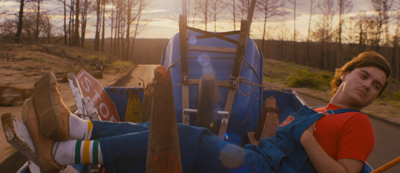 DGG: I don’t know when it came out. I mean, I was there last summer, but whatever it is, the young people know it, and so talking to producers and money people when we were over there, they were like, “Just say when, we’re ready to go.” I can’t even tell you names, but I’m gonna really spend some time educating myself on not only who the great talents are over there, but how to make this fit their mold of a big, successful, commercial Bollywood musica—not make my tongue-in-cheek version. As we talk about how I’ll put a joke in an American movie for the audience, I will try to engineer on Horn OK Please [H2N laughs] what they are dying to see. “Horn OK Please” is what it says on the back of every truck in India, ‘cause there’s so much traffic there’s all this weird communication there with horns. I mean, a lot of this is subject to getting out of the Prince Avalanche experience without embarrassment and hoping that it’s something not only we are proud of but an audience responds to and it makes international sense to be remade and remade again!
DGG: I don’t know when it came out. I mean, I was there last summer, but whatever it is, the young people know it, and so talking to producers and money people when we were over there, they were like, “Just say when, we’re ready to go.” I can’t even tell you names, but I’m gonna really spend some time educating myself on not only who the great talents are over there, but how to make this fit their mold of a big, successful, commercial Bollywood musica—not make my tongue-in-cheek version. As we talk about how I’ll put a joke in an American movie for the audience, I will try to engineer on Horn OK Please [H2N laughs] what they are dying to see. “Horn OK Please” is what it says on the back of every truck in India, ‘cause there’s so much traffic there’s all this weird communication there with horns. I mean, a lot of this is subject to getting out of the Prince Avalanche experience without embarrassment and hoping that it’s something not only we are proud of but an audience responds to and it makes international sense to be remade and remade again!
H2N: In both cases, it’s a win-win!
DGG: Just the persistence of it. I’m sure one of these would be a hit!
H2N: Speaking of your constant desire to tackle films of all types, you just wrapped another movie [Joe, starring Nicolas Cage, which is world premiering in Venice and North American premiering in Toronto] that couldn’t be more different than this one…
DGG: But it’s a good companion piece for Prince Avalanche just because it has a natural backdrop, and is about masculinity and fatherhood—at least figuratively in Joe. In both movies, actually.
H2N: That’s another adaptation situation. I finally just read the book—I wanted to read it before watching any cuts of Joe—and, man, that thing kicked my ass. I guess without spoiling anything, it’s okay to say that you veer from the book’s resolution in a very cinematic way.
DGG: Well at the end of the book you don’t know what really happens. There’s no clarity. And I didn’t want to leave that open, so, yeah, [the ending is different].
H2N: I guess what I’m trying to get at is how you reconcile changing something that seemingly “major.”
DGG: I’ll say this: I think if Larry Brown was alive, he would love the ending to the new movie. But it wouldn’t have stopped me from doing the new ending if he didn’t. Everybody’s gotta understand that the movie version is gonna be very different from the novel, and most authors are pretty cool with that. But ultimately, I can’t do anything that I can’t personalize totally freely and independently.
People talk about independent films, well, what if you’re not independent of an original author and you have to be more true to the source material so you don’t piss off the author or his fan base? Then you’re not an independent movie. You’ve gotta approach [the definition of independent film] as a mindset rather than a structure or a financial categorization of a movie production. It’s really the mindset of: are you really independent? Are you answering to people? Are you taking development notes that you have to respond to? Are you making edits in your movie that the financial entity is demanding you make, regardless of where the money comes from? And I can’t make a movie without that authority.
I tend to work with a very common group of people, and—including myself—nobody insists, “It has to be this way.” For the most part, it’s just a collaborative conversation and understanding and sculpture, and then, when it’s as good as I think it is, not everybody has to agree with me, but, you know, I’m gonna stand by the end product of that movie, or I’m gonna find something else to do for a living.
— Michael Tully







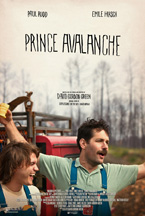

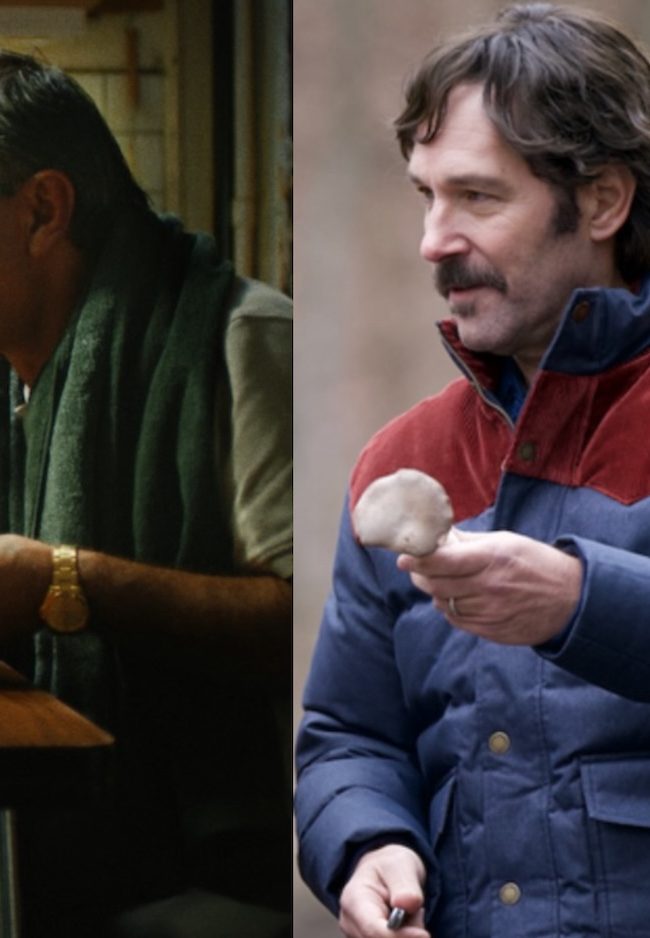
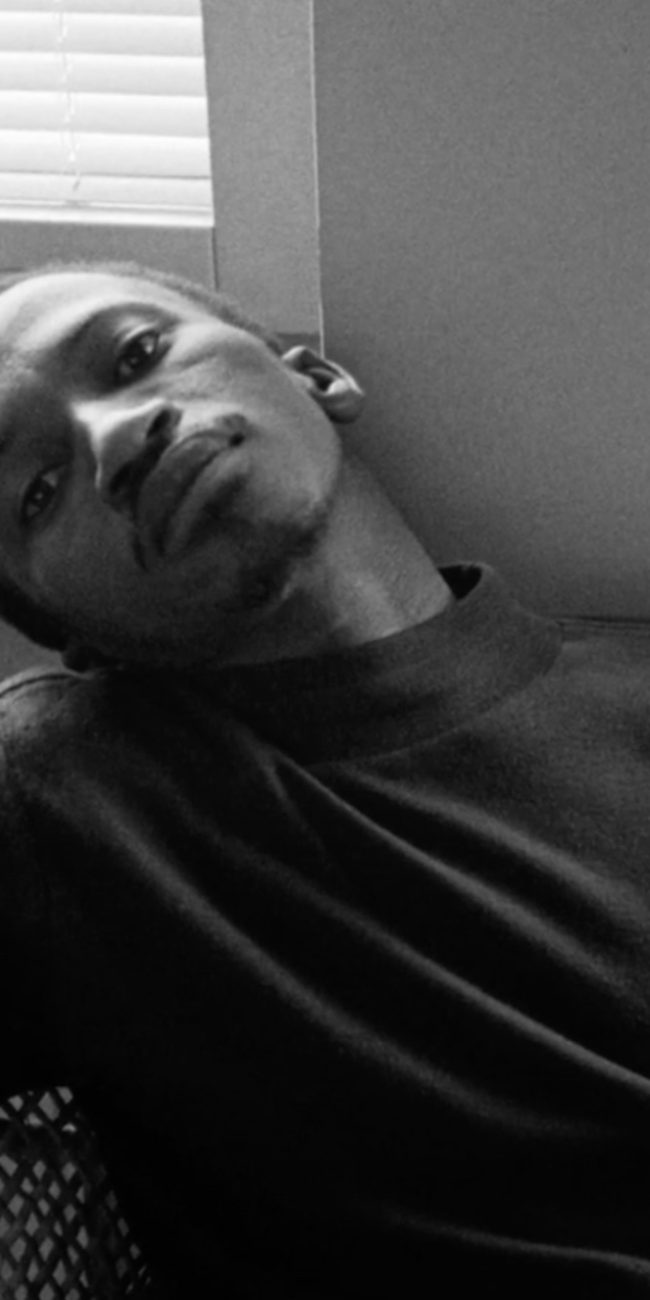


Pingback: THE 2013 HAMMER TO NAIL AWARDS – Hammer to Nail